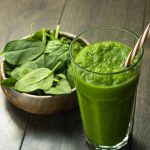Tea is a pleasant and comforting beverage – unless it causes digestive discomfort. Is there any link between tea and gas?
Studies and research are inconclusive as to whether tea could cause gas and bloating. If you experience these symptoms and have underlying medical conditions, we recommend consulting your doctor for the best advice.
Keep reading to learn why tea may cause gas and which types are most likely to be the culprit!
Does Green Tea Cause Gas? Why?
Green tea may be linked to gas and bloating, according to a recent study. Researchers found that fermentable short-chain carbohydrates (also known as FODMAPs) accumulated in the intestines to cause functional gastrointestinal diseases (FGID).
There were about 16,840 participants, ranging in age from 45–75 years old. The food and beverages that were tested included high-fiber whole-meal bread (also known as Swedish crackers), low-fiber white bread, cheese, coffee, tea, soda, and juice. The type of cheese, coffee, tea, soda, and juice was not indicated.
Results showed that high tea consumption led to abdominal pain, bloating, and diarrhea. Tea was also linked to increased risks of FGID symptoms (source: Scandinavian Journal of Gastroenterology).
The study didn’t reveal the amount or type of tea consumed.
Another study reports a 37-year-old female runner who presented with complaints of bloating, belching, crampy abdominal pain, darker urine, infrequent stools, reduced appetite, and a change in smell.
One month before running a marathon, she took a well-known brand of green tea extract every morning. Three weeks after, she developed the symptoms listed above.
Liver tests found she had abnormal liver functions, and later deduced that she most likely had herb-induced liver injury (HILI) from green tea consumption.
According to some reports, green tea can induce hepatoxicity or liver injury. Green tea has been increasingly recognized as a cause of these reactions.
However, the study also noted that reported cases are low. Moreover, women with pre-existing liver damage are more likely to experience this problem (source: Proceedings of UCLA Healthcare). Liver diseases can cause bloating, belching, and abdominal pain.
At this time, the research is not consistent. Another comprehensive meta-analysis found that drinking green tea has no correlation to liver disease.
In fact, the researchers suggested that green tea actually protects the liver, although large-scale randomized clinical trials are needed to support this hypothesis (source: International Journal of Clinical and Experimental Medicine).
Does Rooibos Tea Cause Gas or Bloating?
When it comes to any direct correlation between rooibos tea and indigestion, we didn’t find any support in the current research. If you’re worried about indigestion after drinking tea, rooibos is probably a safe choice.
Rooibos is caffeine-free, which makes it relatively safe against gas or bloating. However, additives like fructose and milk or another dairy can cause these symptoms. Fructose, a sugar, can cause nausea, gas, bloating, abdominal pain, or diarrhea (source: UVA Nutrition).
Dairy or milk products can also cause abdominal gas, pain, distention, belching, bloating, and other discomforts, especially for those who have lactose intolerance.
Can Black Tea Give You Gas?
Black tea has been shown to correlate with gas and bloating. In one recent study, a 12-year-old boy experienced dark urine and pain in the upper-right part of his abdomen for 2 weeks.
It was later discovered that he consumed 1.5–2 liters of iced black tea a day for about three months. The iced black tea contained sugar, fructose, black tea extract, citric acid, and apricot juice.
His test found sludge in the gallbladder and liver damage due to hepatotoxicity from drinking black tea. He was advised to stop drinking it, and after two months, his numbers went back to normal (source: Pediatric Gastroenterology, Hepatology & Nutrition).
The boy’s abdominal pain might also be attributed to the other ingredients present in the black tea, including fructose.
Other Tea Types and Causes of Gas
Chamomile Tea
Chamomile tea has no scientific record of causing gas or bloated stomach. In fact, it helps dispel gas, soothes the stomach, and relaxes the muscles of the intestines to help move food smoothly (source: Molecular Medicine Reports).
Peppermint Tea
Peppermint tea contains peppermint oil. Peppermint oil, according to some randomized controlled clinical studies, is effective against gas, abdominal pain, diarrhea, and dyspepsia (source: Prescrire international (Paris).
Ginger Tea
Ginger tea has been found to help with stomach upset by emptying the gut faster (source: World Journal of Gastroenterology). If your upset stomach is caused by gas or bloating, ginger tea could help relieve these symptoms.
Fennel Tea
A high fermentable oligo-, di-, and monosaccharides and polyols (FODMAP) diet can lead to nausea, gas, bloating, fullness, and abdominal distention when consumed. Fennel happens to be high FODMAP (source: UVA Nutrition). This means tea made from it can be, too.
As you can tell, studies about the relationship between tea and gas and bloating are inconclusive. We hope this article provides a helpful summary of the current research!
Have you ever wondered if it’s safe or even beneficial to eat or drink the actual tea leaves? We’ve looked into that too! Check out our interesting article which dives into this topic.










Comments are closed.